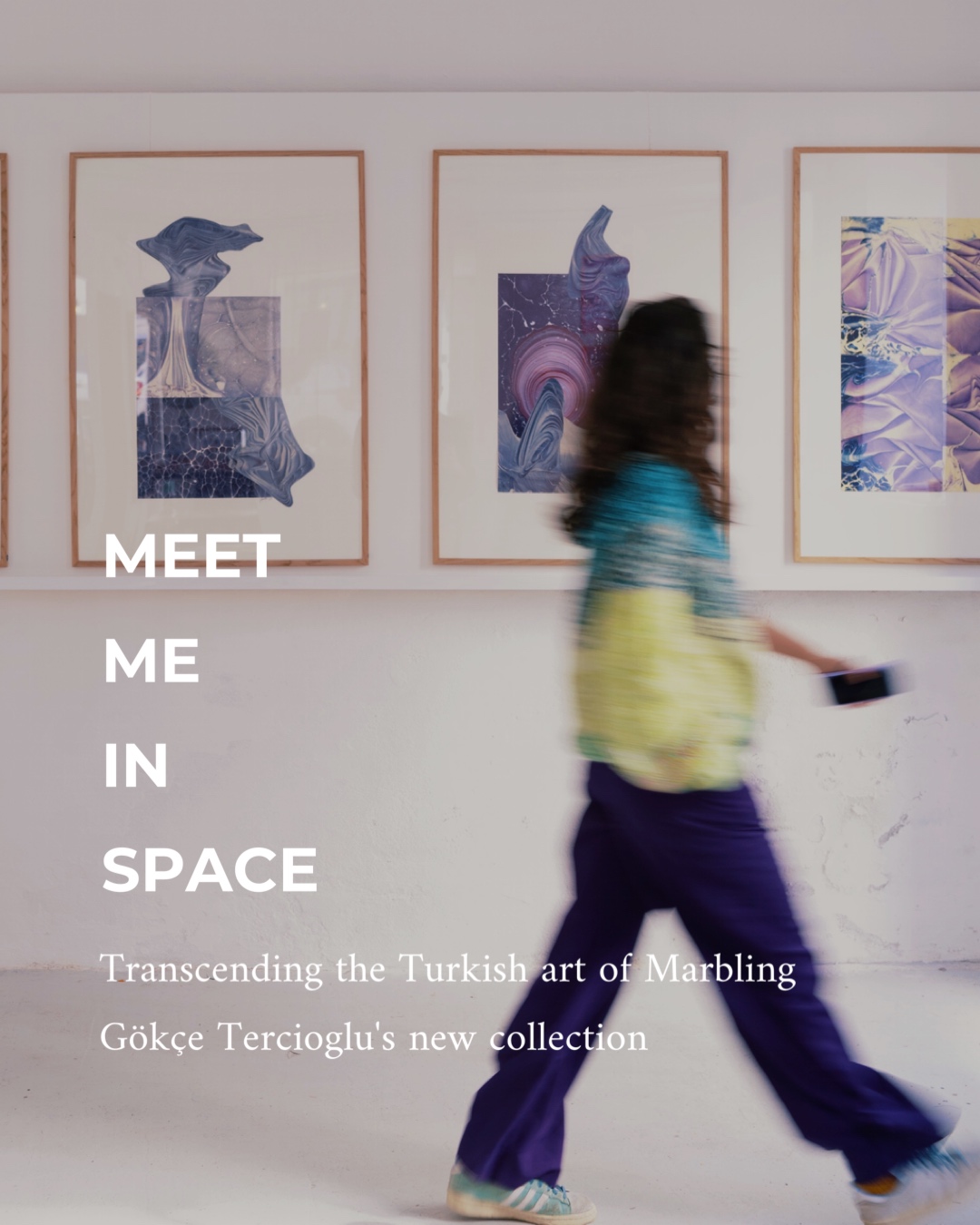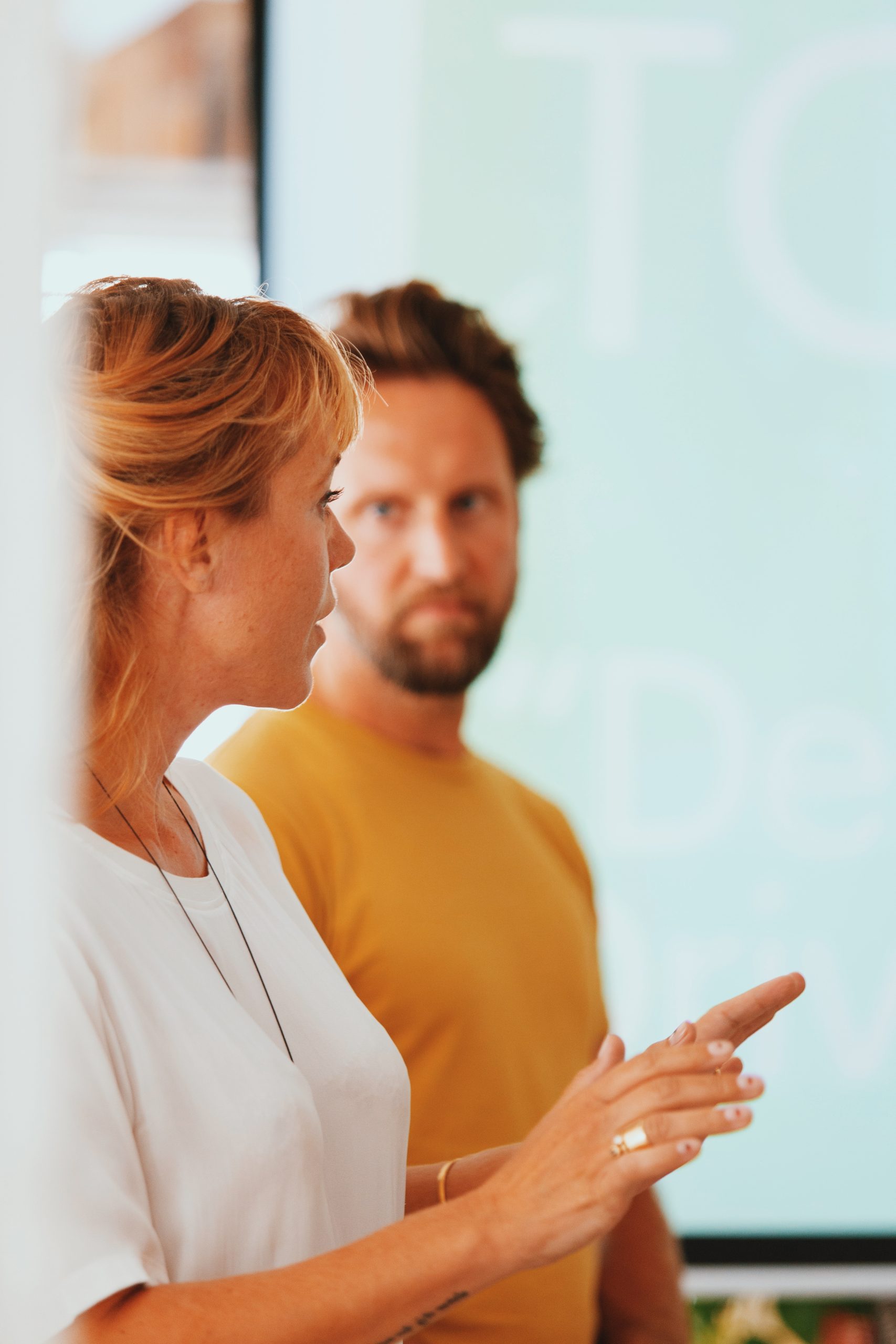Gioia Arieti speaks on wide-time and the reasons why extending our lives is wrong.
-
Gioia is no ordinary designer, she is on a path to revolutionize the way we live and work by widening, not extending, time.
She holds the title as Human-Centered Designer, which makes you instantly raise your eyebrows, but wait… she became an analogue astronaut and her principle on wide-time gained coverage in an American innovation magazine, TEDx, a Space conference in France. Moreover, she clinched an art prize from a European Space community that speaks volumes about her exceptional contributions to the field.
Ok, we have so much to unpack here: have you heard of “wide-time”? According to Gioia, Wide-time stands for time that is measured in width, rather than length. A time unit that measures the intensity with which one perceives time. For example, have you ever felt like more can happen in a week of holiday than a whole month of work? I am sure you know what I mean.
So I am more than honored to portray her and ask a few questions to understand how everything started:
Gioia, who came up with the title of Human-Centered Designer and what is that you do?
The title of Human-Centered Designer has been existing for a long time and it represents an approach to product and process development that prioritizes understanding human behavior and needs, in contrast to the more conventional method of building a product first and then identifying a market need. I personally came across the concept of human-centered design when a friend suggested me to read the book “Change by Design” by Tim Brown, the CEO of IDEO, a company that was an early leader in design thinking.
How is it to be an analog astronaut and what can we all learn from it?
Becoming an analog astronaut is an intense experience. Analog astronauts are civilians that join for long periods of time a research lab that simulates conditions of Space habitats and scenarios of Space travel to help researchers and space agencies understand how humans will cope with the challenges of Space missions. It's a way to anticipate, troubleshoot and fine-tune things before actually sending folks into the great beyond. Practically, that means, that after days of training for self-sufficiency and emergency situations, you are then plunged into a totally isolated and restricted environment with 4 strangers, your crew members, with which you will share most of your time. No natural light, same repetitive meals and strict routine with one mission: carry out experiments and testing some products that will be sent to the ISS.
But beyond the experience´s sheer craziness, it's an eye-opener to understand how much scenario planning work is needed for human psychology in Space, not only for the technical challenges. What struck me the most was the warped sense of time in this sensory-deprived realm.
What was the moment that made you inspired to kick start this wide-time revolution and why?
About three years ago, during the first Covid summer, I couldn’t escape on a holiday but I still needed a break from my everyday job. So, I ditch the holiday idea and I took a break by enrolling in a Space camp. No physical travel, just a mental escape. I remember listening to astronaut Andreas Morgensen, space architects, and analog astronauts explaining how the perception of time changes in Space. Forget dates, a toilet breaking becomes a more relevant time unit to refer to events, such as something happening “before the toilet broke” or “after the toilet broke”, rather than saying “it happened on day 215 of the mission”. I had always had a similar feeling. Why is it easier to remember days when you associate them to an experience? Why do we need to travel to feel like more can happen in one day? Why does a weekend in Spain feel like it lasted a whole week and why can't I get that feeling in the place I live, in my ordinary life? These Space superhumans gave me perspective on how such a human feeling on Earth, is still relevant in space, and it hit me- Maybe we should ditch the calendar dates and base time on memorable events, and that's how I started the thought experiment of wondering “what if we create a calendar based on how we perceive time?”
How can we bring wide-time into our lives?
Growing up in Italy exposed me to a wealth of Latin philosophy, and I was struck by how relevant the writings of philosophers like Seneca remain today. Seneca's famously wrote "the life we receive is not short, but we make it so". While routines can flatten our perception of time, it's impractical to constantly seek extreme novelty, you can’t always go bungee-jumping off a cliff and it's important to also acknowledge the power of routines for personal development. So to widen time is important to strive for a variety of experiences: exploring more, taking risks, sometimes doing something foolish, this way you shift your perception of time from linear, to wide, intense, and after 30 years, you will have so many stories to tell, you will feel like you have experienced 60.
Therefore you can simply start to bring wide time in your life by becoming aware that distorting the perception of time is in your power, and secondly, by introducing “seasons” of change in your life, embracing small yet impactful shifts, like celebrating New Year on September first, or taking different routes when cycling to work, or doing something new for a few weeks.
In theory, the calendar seems pretty easy to follow: celebrate New Year on September 1st and the End of the Year on May 31st, and assess your progress towards your goals on December 31st. While pursuing your resolutions, follow three seasons of change: the “context break,” a month dedicated to altering routine contexts; “Mad March,” trying something new every day; and the “non-linear” summer seasons encouraging spontaneous behavior … Why is it structured like this?
The calendar is essentially a tool for setting goals within a specific timeframe, maintaining routines and it follows human-centered "seasons" based on how we perceive, or want to perceive, time. In my case, significant shifts occur between October and November in Copenhagen as the days darken, and energy levels dip. To counter this, I break the monotony by changing the context of my routines—taking a different route to work or enjoying coffee at a cafe instead of my desk. Another pivotal time for change is in March, when longer, sunnier days emerge. Feeling confined by winter routines, I challenge myself to do something new each day of March. The key is to maintain a focused yet flexible approach, consciously shaping your actions to actively distort your perception of time.
What is your most crazy and extreme experience you have done to widen your time and what is that you are wishing to do next?
I had expected that the wildest experience would have happened when checking off something from my bucket list during March, when I try to do something new everyday. But truly, I was blindsided by the mental energy required to think of something new everyday, and the bias towards things I merely wanted to do instead of actually pushing my boundaries. Only after I started asking friends for suggestions, or started trying new things that required more than a day of prep, I ended up chasing experiences that actually blasted me outside my comfort zone.
Where do we start to learn about the wide-time calendar?
You can check out my TED talk to get a deeper understanding of the thought experiment behind creating a calendar designed to distort our perception of time, or, you can visit the website directly to explore the calendar https://www.wide-time.com/


















































































